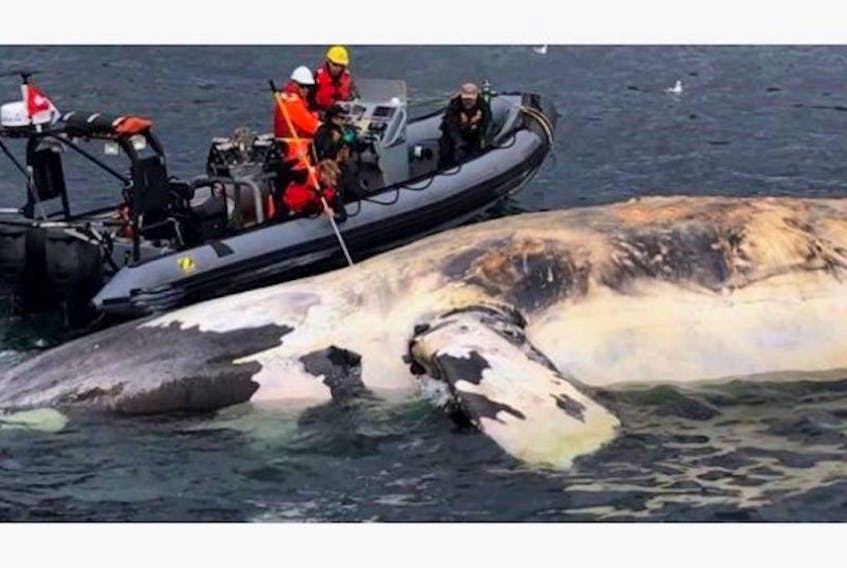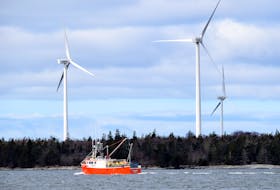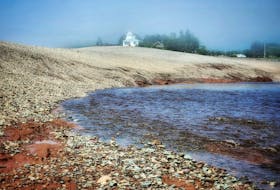Human activity including fishing is the likely cause for a recent spate of North Atlantic right whale deaths, warned the Canadian Wildlife Health Cooperative in a report released Thursday.
Researchers conducted necropsies on seven out of 12 right whales killed in Canadian Atlantic waters since June. Of the seven examined, one death was caused by chronic entanglement in fishing gear and four others by likely blunt-force trauma from ship strikes.
The cause of death for the sixth whale could not be determined as its corpse was heavily decomposed, while results for the seventh whale are not yet available. All seven whales were from the Gulf of St. Lawrence, a hot-spot for deaths.
“Human activity was the primary cause of death for most of the animals,” said Tonya Wimmer, director of the Marine Animal Response Society.
Her group partnered with the Department of Fisheries and Oceans and CWHC to produce the findings, titled ‘Incident Report: North Atlantic Right Whale Mortality Event in the Gulf of St. Lawrence, 2017.’
She added that the 12 Canadian right whale deaths were a devastating loss for a worldwide population of just 458.
Of the 458 right whales, 114 have been spotted in the Gulf of St. Lawrence this year, a busy stretch of sea plied by fishing vessels and other shipping.
“This makes it pretty much the most deadly year we’ve seen for right whales since the years of whaling,” said Wimmer.
Another five whales suffered fishing gear entanglements in the Gulf of St. Lawrence but survived, according to the report.
The report notes the recent spate of deaths was caused by a likely combination of factors including an increased concentration of animals in the area, exposing them to human activity, plus increased surveillance efforts uncovering whale carcasses.
Researchers also say that “many more detailed analyses will be required,” to identify threats facing right whales.
The DFO will also be working with the fishing industry and others who use the Gulf of St. Lawrence, including the fishing crews based in Pictou County.
“I expect that the fishing community in your area will be working with the DFO in the current month,” said veterinarian and report co-author Pierre-Yves Daoust.
Right whales are already listed as endangered by both the Canadian and U.S. federal governments.
On July 20, the DFO closed Snow Crab Fishing Area 12 in the southern Gulf of St. Lawrence to protect North Atlantic Right Whales from being snared in snow crab fishing gear. The DFO also directed that other fisheries in the area be limited, delayed or closed for the same reason.
In August, Transport Canada imposed a temporary mandatory speed restriction for vessels 20 metres or more to a maximum of 10 knots when travelling in the western Gulf of St. Lawrence. It also requested a voluntary slowdown for vessels under 20 metres.
“Following the deaths of 12 North Atlantic Right Whales this summer, our responsibility is to continue to take action to ensure these marine mammals are protected for future generations,” said a joint statement by federal Minister of Transport Marc Garneau and Dominic LeBlanc, Minister of Fisheries, Oceans and the Canadian Coast Guard.









